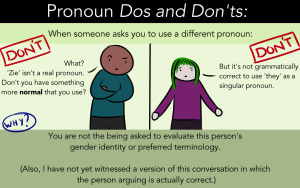
Person discussing with a doctor
While reflecting on recent news about health care, I think back on the lives of Anarcha, Betsy, Lucy and nine other unnamed enslaved Black women who were experimented on by the “father of modern gynecology,” a white doctor named J. Marion Sims.
Without their consent or anesthesia (which was available at the time), Sims perfected a procedure on the women between 1845-1849 to repair vaginal fistulas, a common condition at the time affecting many women who gave birth.
Once heralded as feats by the medical community, Sims’ experiments are part of a long history of atrocities committed against Black women’s bodies in the U.S. in the name of science and the public good.
Black women and femmes today continue to face medical horrors, which is why we must demand better from our policymakers.
We owe this to Anarcha, Betsy, Lucy and the other enslaved Black women defiled by Sims.
Our society has always perceived Black bodies as disposable, except when they benefit those who are white, male and/or wealthy. When we’re not generating profits for white supremacist institutions, Black femme bodies are viewed as needing to be controlled.
Eugenics, a worldview that only people with desired traits should reproduce, resulted in federally-funded sterilization programs that targeted women of color, disabled folks, incarcerated folks, immigrants, and single mothers in 32 states throughout the 20th century.
Furthermore, bodily autonomy is constantly threatened by anti-choice legislation from conservatives, who seek to limit our access to abortion and birth control. Ironically, when we do have children, the government feels no obligation to take care of them.
Biases and prejudices within both our government and medical system negatively impact the quality of healthcare for Black women.
A study released by the University of Virginia in 2016 found that some medical students believe Black people feel less pain than whites and that this belief likely affects how they treat their patients.
As a working-class, Black, queer, non-binary woman, I’ve had my own pain discounted by white physicians. For almost 20 years, I suffered from debilitating period pain and most providers recommended the age-old remedy of Ibuprofen and a heating pad.
I often wonder if the cysts on my ovaries would have been discovered sooner if I were white.
And while I’m grateful for having health insurance that covered my IUD insertion last December — making my periods much less painful — I know other Black women aren’t so lucky.
Dr. Zakiya Luna, a professor of sociology at the University of California Santa Barbara who researches reproductive justice movements, says that Black women and other oppressed groups with unequal access to health care are more likely to have illnesses that become compounded.
Black women experience disproportionately high rates of chronic conditions, such as heart disease, diabetes and HIV/AIDS and are three to four times more likely to die during childbirth than white women.
When Republicans attack affordable health care, we’re one of the most impacted groups.
I’d argue that most Black women — who voted overwhelmingly in favor of Hillary Clinton last November — are supportive of the progress made possible by former Pres. Obama’s Affordable Care Act, including Medicaid expansion and banning discrimination against people with pre-existing conditions.
We don’t want to lose the new protections provided for by Obamacare. A bill to repeal Obamacare recently failed to pass in the Senate, but Republicans seem more determined than ever to dismantle it.
Meanwhile, some congress members are advocating for a progressive health care bill to be introduced, such as Sen. Bernie Sanders of Vermont, who is in favor of a single-payer health care system.
While I appreciate those in power who are working towards more affordable health care, I wish they would listen to the folks who need it the most.
Right now, our legislators should be asking historically oppressed people what we want to see in a health care bill for ourselves and our communities.
Here’s list of five things that Black women want to see in a new health care bill:
1. Mandatory anti-oppression training for medical providers
As part of her research, Dr. Luna interviewed a PhD student and expecting mother who experienced microaggressions when visiting a new provider in a new town. Since the woman was swollen, she took off her wedding ring prior to her doctor visit.
“While she was getting care, her doctor made a comment about her being a single parent on welfare and that hadn’t been established as a fact in any way, shape, or form,” Dr. Luna says.
In that moment, it was clear the doctor was making assumptions about her relationship and financial statuses solely based on her appearance.
This is what happens when physicians aren’t educated about what oppression looks like in health care.
Medical schools need to train students on how to empathize with patients from historically oppressed backgrounds. Anti-oppression training would help debunk misconceptions they have about people of color, including the myth about Black people feeling less pain.
Now is the time for doctors to move beyond being just “culturally competent.”
“Most of us want more than just competent care providers. We want a care provider who cares about us, who cares about our success,” Dr. Luna says.
2. Access to nearby reproductive health and primary care, including birth control, abortions, and prenatal care
Bianca Campbell, a 29-year-old reproductive justice advocate and board member at Access Reproductive Care in Atlanta, says that if cisgender men gave birth, the act would be prioritized in our patriarchal society.
Patriarchy also presents barriers to abortion for Black women, which is why activists like Campbell are fighting to end the Hyde Amendment, which prevents public money from funding abortions.
Additionally, as someone whose health insurance doesn’t pay for her birth control of choice, Campbell is fighting for insurance companies to cover all types of birth control.
Besides access to reproductive health care, Campbell wants to see support for rural health care in a new health care bill. Black women in rural Georgia shouldn’t have to drive two hours to access the care they need.
There should be midwives, registered nurses, and community health workers on the ground in every city, whether big or small.
3. Access to culturally relevant mental health care.
Alisa Shockley, a 28-year-old doctoral student and lifetime Philadelphia resident, points to the burden of the “strong Black woman trope” as one reason why Black women in particular need access to mental health care.
Historically, Black women have been viewed as the backbone of the Black family – the person who places everyone else’s needs before their own and who never gets to simply take care of themselves. This stereotype is harmful to us because, often, we start believing it.
It’s essential for Black women to have access to mental health professionals who look like us and can empathize with our stories.
Campbell’s health insurance, which is paid entirely by her employer, doesn’t cover couples counseling from the therapists she prefers, which are Black women and Black queer and trans people.
Since their practices are mostly small, Black therapists often accept only a few types of insurance or cash. Black women need better access to these providers because they understand our experiences and the stigma against mental health care in communities of color.
4. More opportunities for aspiring Black physicians
Living in Seattle, it’s difficult to find Black doctors, especially ones who accept my specific health insurance. I envy people like Campbell who live in Black meccas and have access to Black-led health resources, such as the Center for Black Women’s Wellness in Atlanta.
Black women want more educational opportunities for aspiring Black physicians, especially Black women.
Between the 2013-2014 and 2015-2016 academic years, only 7.5 percent of students entering medical school identified as Black.
A health care bill shaped by Black women would provide POC with more pathways into medical school. Shockley says she hopes more medical students of color join the fight against discrimination within our healthcare system.
5. Support for holistic care
Black women want holistic care that focuses not just on the illness, but on the person as a whole. This is especially important for Black women with multiple oppressed identities, including those with disabilities.
“I want disabled bodies to be acknowledged as full, whole, perfect, beautiful, amazing bodies,” Campbell says. “The world needs to think about incorporating them as opposed to asking their bodies to conform.”
This means making sure disabled folks who need home health care services in order to stay independent are able to receive them. It also means training doctors to carefully consider all of a person’s care options instead of rushing them into costly and invasive procedures.
Holistic care looks like medical providers listening to communities who are most impacted by health issues.
“It’s important that new medical professionals are trained to really understand the importance of health care being not just about health, but also caring about people’s experiences and communities,” Dr. Luna says.
***
This is, by no means, a comprehensive list, but it’s a start.
If you are a Black woman, I hope this inspires you to reflect on your own health care experiences and how they could be better. If you love a Black woman, ask her if and how you can support her health goals and needs.
Our bodies are little miracles and deserve the best care. Black women’s voices should be centered in any new health care bill in order to ensure that all Black people and all women have access to quality health care.
[do_widget id=’text-101′]
Neesha Powell-Twagirumukiza (she & they pronouns) is an Everyday Feminism Reporting Fellow. Neesha identifies as an intersectional feminist, womanist, writer, community organizer, facilitator, dancer, freedom fighter, wife, and cat mama. She’s constantly conspiring in the name of liberated Black futures, queer and trans people of color power, solidarity economics, and transformative justice/community accountability. Neesha’s based in a suburb south of Seattle, where she lives, loves, and creates with chosen family.
Search our 3000+ articles!
Read our articles about:
Our online racial justice training
Used by hundreds of universities, non-profits, and businesses.
Click to learn more




















